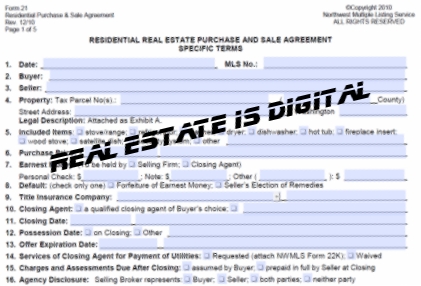There was a time when I had 10 file cabinets lining my office walls, all legal size, organized by various categories and all the files were alphabetical. I had hundreds of client files, and I felt obligated to keep them forever. What if I needed something in one of the files, or what if there was a liability issue, and I had to defend myself?
All those files took so much paper and folders and labels. Creating them also took a lot of man hours (or paid secretary hours). Maintaining them took time. But sometimes a file would get filed out of order. It could take hours to find a misfiled file. Even worse, a document could get filed in the wrong folder. That document was lost forever. Even everyday documents had to be handed to my secretary, and she would put them in a stack to be filed, and what if it never made it to her or to the stack? Hard files were not only inefficient, they were often an excellent way to lose a document forever.
Thank God for digital systems. These systems are inexpensive and super efficient for all our real estate documents and files.
Digital or paperless transactions allow us to send documents back and forth to clients via scanned documents we email or through an online system that sends and receives the documents directly, and digital signatures that also increase convenience, speed, and quality.
Not only can we efficiently coordinate documents with clients, but digital technology allows us to send and receive documents of all kinds to and from other parties, such as title companies, escrow companies, home inspectors, well and septic companies, and other real estate agents.
Apart from the obvious efficiencies, online systems also make broker review quick and easy from any computer anywhere, and state audits make compliance manageable. One might think that digital transactions would have eclipsed hard copies and file cabinets, but they have not. Many traditional real estate offices are full of paper and files and cabinets.
While physical files can be misplaced or lost in a fire, digital copies reside on a hard drive, and digital online backup systems save us from almost any disaster. Real estate agents have so much information at their fingertips now in this new digital world. Real estate deeds, CC&Rs, plats and maps, and assessor information are all available online in a matter of minutes. Due diligence on properties and people has risen to entirely new levels.
Real estate forms used to fill up an entire file cabinet, but now we simply go online, enter the MLS number, and the parties names and terms, and the forms are print ready. Much of what we use is now found in the cloud, the Internet cloud that is. All of this digital technology does something else that is very green: it eliminates a lot of garbage and shredding.
Of course, one of the great uses of online technology is the subscription side of the MLS for agents. This sure revolutionized the handling of listings in the back office, and now with IDX data feeds to public MLS search sites, buyers have more information about listings at their fingertips then ever.
Using this technology has revolutionized my real estate business, and my clients love the freedom and power it gives them.
Last Updated on July 14, 2011 by Chuck Marunde





























Great post. I love the fact that the cloud is getting mentioned more and more these days. It’s also good to see environmental responsibility for paperwork being taken into account. A virtual office could also be used to reduce costs and bring down the carbon footprint 🙂
Technology has a lot of advantages. It has not only helped the real estate industry but almost all other industries to lessen the work load. 🙂
The digital age/internet is also great for those of us who are looking for property. Being able to flick through hi-res photos online or even go on a virtual tour of a property without leaving my home is a great advantage.
Luckily for me, I’ve never known the old way of searching for property!